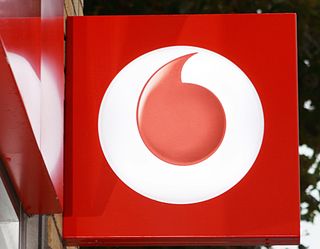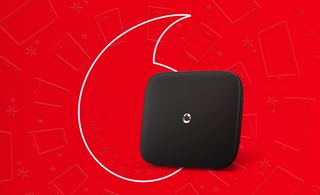Vodafone completes Liberty Global cable deal, but UK off table for now
Vodafone will pay €18bn for networks in Germany, Central & Eastern Europe, but UK deal has to wait

Vodafone has agreed a €18.4 billion deal to acquire Liberty Global’s cable networks in Germany, the Czech Republic, Hungary and Romania in a move that will accelerate its converged network vision and make it Europe’s largest ‘next generation network’ (NGN) provider.
Amid intense competition in the mobile sector, and a belief that fixed-mobile convergence is the future, Vodafone has invested significantly in fixed infrastructure, building or acquiring networks in Spain, Italy, Germany and Portugal, while it has wholesale agreements in other markets, including the UK.
Talks with Liberty Global have been ongoing for the best part of three years, with talks first held in 2015 about a possible exchange of assets. Those ended without agreement but in 2016, the two firms agreed to merge their mobile and cable operators in the Netherlands in a bid to take on incumbent KPN.
Truly converged
This latest deal will see the company’s fibre footprint increase to 110 million across the continent, including 54 million on its own infrastructure.
“This transaction will create the first truly converged pan-European champion of competition,” declared Vodafone CEO Vittorio Colao in a call to journalists this morning. “We have delivered synergies in Spain, and the Netherlands, so we’re confident about [Germany and Central & Eastern Europe].”
The transaction is expected to close in 2019 subject to regulatory approval, but Vodafone is confident there will be no obstacles to overcome.
Deutsche Telekom CEO Tim Hoettges has been a critic of the proposed combination of Unitymedia and Vodafone in his country, arguing it will distort competition. Unitymedia itself was formed through the purchase of several formerly independent regional operators created when Deutsche Telekom was forced to spin off its cable assets in the early 1990s.
Are you a pro? Subscribe to our newsletter
Sign up to the TechRadar Pro newsletter to get all the top news, opinion, features and guidance your business needs to succeed!
Hoettges has today reiterated this belief, but Colao dismissed his counterpart’s concerns as self-serving, adding that he did not expect any potential resistance from EU regulators because Vodafone and Unitymedia’s cable assets did not overlap. Therefore, there would be no reduction in cable competition and customers could still opt to take IPTV or satellite television services instead.
“I was amused this morning by Tim’s comments,” he said. “Our mission has always been to protect competition and to push for competition and it seems that Tim Hoettges mission is to build [Deutsche Telekom’s] dominance.
“But bad news for him, there will be a second [major] German player.”

Progress
In the UK, Vodafone uses a combination of the Cable and Wireless network it acquired in 2012 and a wholesale agreement with Openreach to deliver its broadband services. However it will become the anchor tenant of CityFibre’s national fibre network, which is set to reach one million premises by 2021 and could eventually target five million.
Colao said that it was pleased with its fixed progress in the UK and would reveal more next week, adding that this latest deal would not mean it would neglect the British market. While he refused to categorically rule out a move for Liberty Global’s Virgin Media in the UK, he said the possibility has never been on the table.
“In the UK we are just starting convergence … and we are working mostly on wholesale and will work CityFibre as soon as the fibre is available,” he explained. ““It’s not on our agenda now. You can never say never in life … but I wouldn’t go any further than that.”
- Check out the best broadband deals for May 2018
Steve McCaskill is TechRadar Pro's resident mobile industry expert, covering all aspects of the UK and global news, from operators to service providers and everything in between. He is a former editor of Silicon UK and journalist with over a decade's experience in the technology industry, writing about technology, in particular, telecoms, mobile and sports tech, sports, video games and media.
